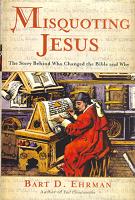The Atheist's Way by Eric Maisel (Greg Petersen, reviewer)
By Greg Peterson
The Atheist's Way: Living Well Without Gods
By Eric Maisel
New World Library
208 pages
Ever
since Sam Harris first got our attention with The End of Faith,
a parade of atheist-themed books has come out. Thanks to people like
Richard Dawkins, Victor Stenger, Taner Edis and others the scientific
case for the implausibility of religious dogmas has been largely
made. Christopher Hitchens has made the politico-sociological case
against the desirability of religion, and Daniel Dennett has gotten
us to question religion and religious psychology. But until recently,
a few topics have been missing from our canon. Enter Eric Maisel and
his Atheist's Way.
Way presupposes atheism.
Maisel spends no time making a case for godlessness, a position he
sees as too evident (perhaps because the case has been made
elsewhere) to address in this slim volume. He has other, bigger fish
to fry, anyway, rather than rehashing the same old arguments against
cogent evidence for theism.
Maisel sets out to answer the question, "How then should we live?" and he largely succeeds in providing challenging answers that provide philosophical courage and direction without succumbing to unrealistic, wishy-washy, banal "inspiration."
This is the path of existentialism that looks reality in the eye unflinchingly and determines to create in our meaningless universe a source of boundless meaning from within. We nominate ourselves, we invest meaning, and we take off on a hero's quest. Some statements within the book reminded me of my favorite line from the TV series, Angel, in which the title character says, "In the greater scheme or the big picture, nothing we do matters. There's no grand plan, no big win....If there is no great glorious end to all this, if nothing we do matters, then all that matters is what we do. 'cause that's all there is....All I wanna do is help. I wanna help because I don't think people should suffer as they do. Because, if there is no bigger meaning, then the smallest act of kindness is the greatest thing in the world."
Maisel might take exception to some parts of what Angel said. It is perhaps a little facile. But as a statement of principle for the character, it rather nicely reflects the attitude of Atheist's Way. In one sitting, I read it cover to cover. It took a couple of chapters to get into the book, but once I was hooked, I was hooked like a hungry trout.
Too few atheist writers, even the best ones, seem to know how to address the problem of meaning - not for themselves, but for others. It is fine for the relatively well-off and well-known to make brash proclamations about a godless universe without ultimate purpose, but where does that leave the overweight stock boy in Kansas who wants to be part of an epic struggle between opposing forces to give his life some meaning? I found Way has the answer: Anyone can be involved in an epic, heroic struggle against the forces, external and internal, that would seek to drain life of meaning. It truly is a heroic undertaking, and has the added virtue of being true in a way that demons, angels, and apocalypses never can be.
This is a book to challenge and improve an atheist's life, and to show the religious skeptic afraid of embracing atheism a clear-eyed view of what a life free of superstition can be. It is simply written, direct, accessible, and potentially life-changing. There's no excuse not to read this book, and I urge all atheists to do so. Frankly, we need a better class of non-believer, and adherence to the "Way" laid out in this book can help produce that.
The most loathsome movie character I know is Cypher from "The Matrix." Knowing what was real, he chose to re-enter the imaginary world of the matrix to experience fantasy comforts and pleasures rather than bravely facing a gray, bleak reality in which painful struggle could make him an actual hero. This choice is somewhat analogous to what Maisel lays out for the reader. As a life coach, he provides the insight, the motivation, and the methodology to make selecting the hero's journey seem not only achievable, but noble in a way that will satisfy the self.


